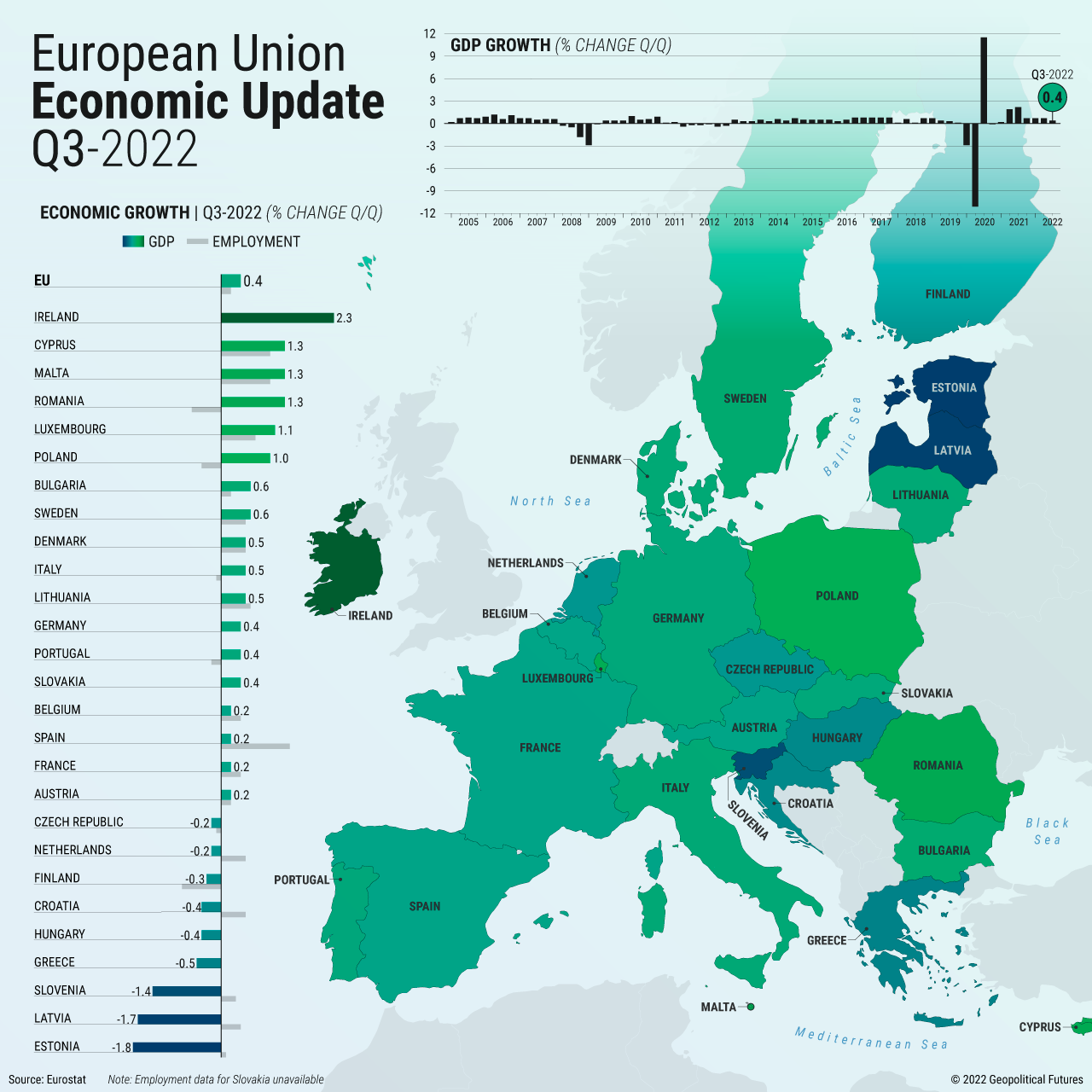The European Union continued its economic slowdown in the third quarter. High inflation, an energy crisis, a global slowdown and tighter financing conditions were drags on EU growth. The war in Ukraine continues to take its toll on regional economies. High prices depressed consumer and business confidence and hampered energy-intensive industries. Emergency fiscal measures have offset some of the effects but at the cost of higher debt.
The health of the labor market remains a positive surprise, with unemployment falling to new lows. The European Central Bank expects a mild recession beginning next year, so a drop in employment is probably imminent. But given Europe’s persistent labor shortages, a growing problem since the pandemic, unemployment likely will not increase too much.





